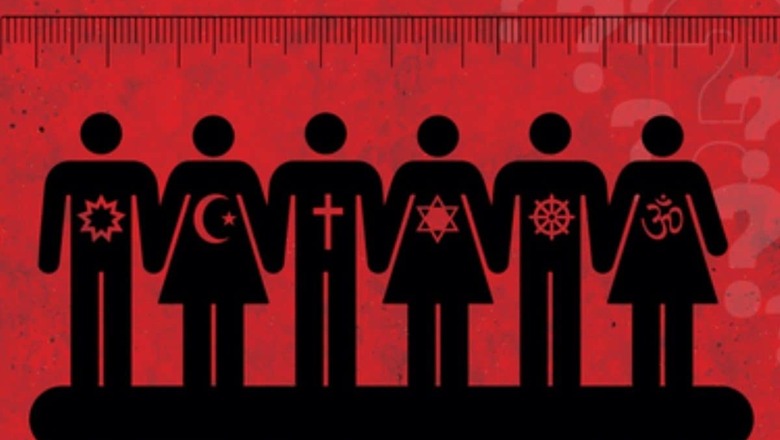
views
It is easy to frame the Uniform Civil Code (UCC) as a polarising Hindu-Muslim issue. Indeed, it is the last remaining ‘core issue’ among the three distinctive agenda items that defined the BJP’s ideological distinctiveness from the 1980s onwards. Of the other two, the Ram temple in Ayodhya is nearing completion and Article 370 has already been diluted. So, when Prime Minister Narendra Modi pushed for the idea of the UCC soon after the 22nd Law Commission asked for public suggestions on it, the reactions to the move saw predictable opposition – from AIMIM’s Asaduddin Owaisi to the Muslim Personal Law Board to divisions within opposition ranks.
While the discussion so far has only been on the idea of a Uniform Civil Code and it is unclear what form a proposed UCC will eventually take, the debate may not be as straightforward as traditional fault lines suggest.
First, there is the question of tribal rights. Tribal groups in Chhattisgarh, Jharkhand and the Northeast have expressed concern that a UCC may interfere with tribal rights, customs and practices. In the Northeast, this includes questions raised by three chief ministers – Zoramthanga in Mizoram, Conrad K Sangma in Meghalaya, and Neiphiu Rio in Nagaland. Zoramthanga’s Mizo National Front, Sangma’s National People’s Party and Rio’s Nationalist Democratic Progressive Party (NDPP) are part of the BJP-led North East Democratic Alliance (NEDA).
Reservations have also been expressed by the Akhil Bharatiya Vanvasi Kalyan Ashram (ABVKA), an RSS-affiliated body that works in tribal areas. ABVKA has pushed for further consultations with tribal bodies and favours the suggestion by BJP MP Sushil Modi, chairman of the parliamentary panel on law, that tribal groups, including those in the Northeast, be kept out of the ambit of the proposed UCC.
India has over 730 tribal groups notified under Article 342 of the Constitution and such a move, if it happens, would assuage many of the concerns expressed by their representatives.
Second, the traditional stereotype of the commonly assumed Hindu-Muslim binary on the UCC may be more complex than it looks. A recent survey of over 8,000 Muslim women across major states by Network18 offered interesting responses.
While the survey did not explicitly mention the UCC, the responses in the survey, conducted in-person, flew in the face of traditional positions.
When asked if they favoured a common law for personal matters such as marriage, divorce, adoption or inheritance, 67.2% women said ‘yes’. As many as 82.3% said men and women should have equal rights to property and inheritance, 64.9% wanted adoption to be allowed regardless of religion, 73.7% favoured the rights of divorced couples to remarry without restrictions and 78.7% favoured 21 as the legal age of marriage.
The survey also indicated a difference within age groups. Women below 44 years of age were even more liberal in their responses and those above 44 slightly more conservative. But the survey indicated a clear direction of change.
Ever since it was first debated by the Constituent Assembly, the UCC has always been framed as a Hindu-Muslim question. Its opponents feared it may turn out to be a Hindu Code in disguise. This is why the idea of the UCC has always remained a political lightning rod.
A lot will depend on specifics and the actual proposal when it is crafted. Yet, if the Network18 survey is any indication, then a gender-just, light-touch regulation that ensures a common set of legal principles for marriage, succession, and parental unions may have much wider support than traditional political divisions suggest.
Nalin Mehta, an author and academic, is the Dean of School of Modern Media at UPES University in Dehradun, a Non-Resident Senior Fellow, Institute of South Asian Studies at the National University Singapore, and Group Consulting Editor, Network 18. He is the author of The New BJP: Modi and the Making of the World’s Largest Political Party. Views expressed in the above piece are personal and solely that of the author. They do not necessarily reflect News18’s views.


















Comments
0 comment